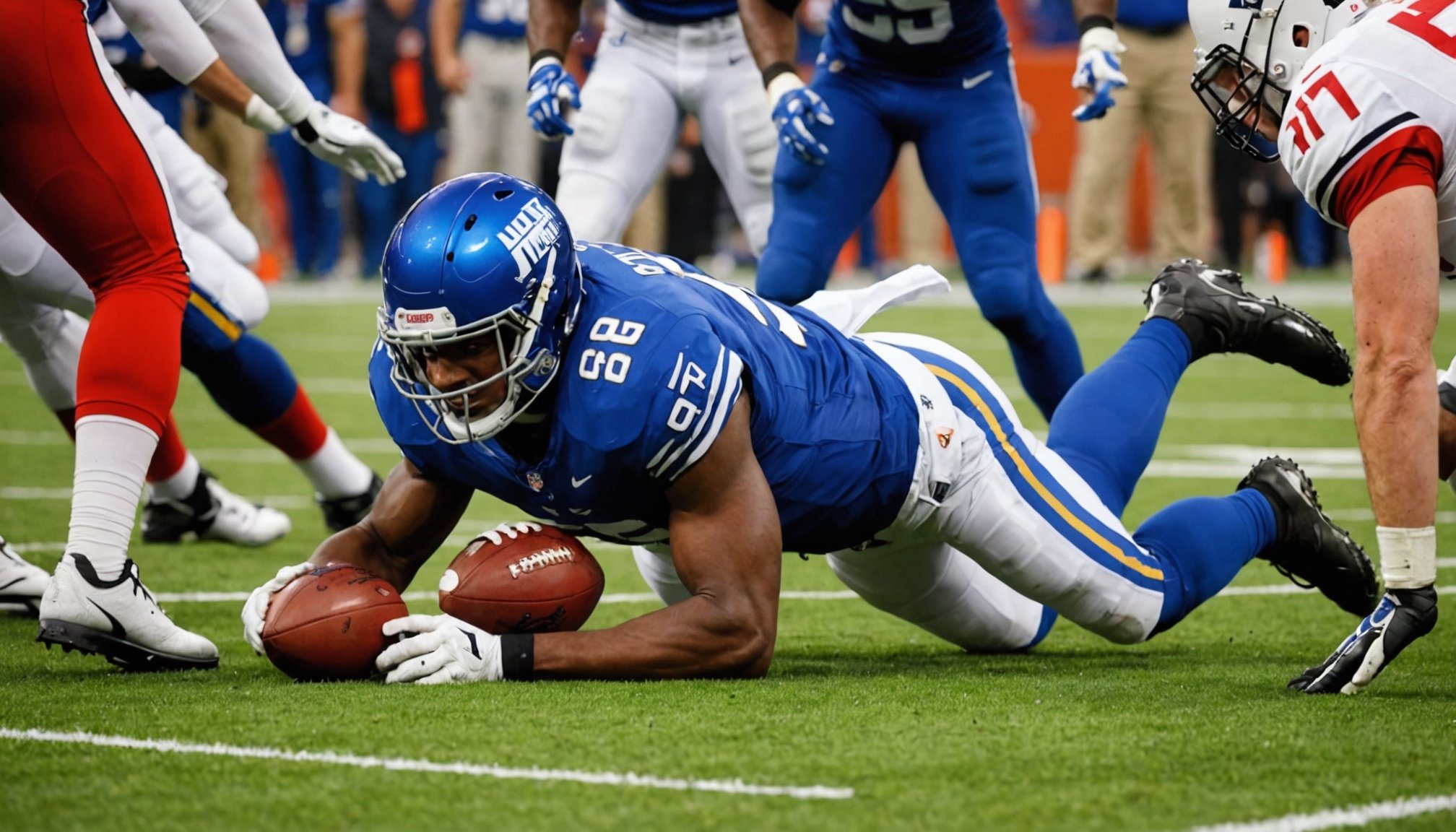Understanding the Importance of Sleep for Athletes
Sleep is crucial for both physical recovery and muscle repair among athletes. During sleep, the body goes through cycles that are essential for repairing tissues and building muscle mass. This process is vital in maintaining and improving athletic performance.
Moreover, sleep plays a significant role in cognitive function and decision-making, critical factors in sports. Athletes with adequate sleep are more alert, better at strategizing, and tend to make quicker and more accurate decisions. Lack of sleep affects these abilities, leading to poor decisions that can impact game results.
Also read : Effective techniques for football academies to boost technical skill development in young players
Sleep deprivation has severe repercussions on performance, potentially increasing the risk of injury. Without enough rest, an athlete’s reaction times slow down, and their endurance decreases, making them more prone to injuries. Chronic sleep loss can also lead to prolonged recovery times and a greater likelihood of physical setbacks. Thus, prioritising sleep is not just about rest but is a fundamental component of an athlete’s regimen to ensure safety and optimal performance.
Understanding these key aspects highlights why sleep benefits are indispensable for athletes aiming to excel. Proper sleep can be the difference between winning and losing, not just in games but also in maintaining long-term athletic health.
Also read : Elevating player performance: innovative travel strategies for uk football teams to tackle fatigue
Sleep Hygiene Practices for Optimal Rest
Crafting an ideal sleep environment is fundamental for athletes seeking restorative rest. This involves controlling factors like light, noise, and temperature. A dark room with minimal noise contributes to deep sleep stages. Additionally, maintaining a cool temperature, ideally between 15-19°C, can aid in falling asleep faster by lowering the body’s core temperature.
Establishing a consistent and relaxing bedtime routine further supports optimal rest. Engaging in calming activities such as reading or taking a warm bath signals the body that it is time to unwind. Consistency is key; try to go to bed and wake up at the same time every day to regulate the body’s internal clock.
Avoiding screen time and stimulants like caffeine close to bedtime is crucial. The blue light emitted from screens can suppress melatonin production, a hormone essential for sleep. Likewise, consuming stimulants in the evening can disrupt sleep patterns, making it difficult to both fall and stay asleep. By focusing on these sleep hygiene practices, athletes can enhance their overall sleep quality. This can lead to improved recovery and performance, helping them reach their athletic potential.
Pre-Game Sleep Strategies
For athletes, a consistent sleep schedule leading up to game day is essential. Aligning sleep naturally with the body’s circadian rhythm helps ensure that athletes are well-rested and ready for peak performance. Quality sleep involves not just duration but depth, providing crucial rest and recovery.
To achieve quality sleep the night before an event, athletes might use specific pre-game sleep techniques. One effective approach includes winding down with calming activities like meditation or gentle stretching. Creating a comfortable and dark sleep environment also signals the body that it’s time to rest. Consistency in sleep and wake times should be maintained.
Travel presents challenges to a regular sleep schedule, but athletes can adapt by adjusting their routine in advance. Gradually shifting sleep hours to match the upcoming game day schedule helps acclimate the body to new time zones. Maintaining familiar bedtime rituals despite location can reduce travel-related sleep disruptions.
Incorporating these strategies into their regimen, athletes benefit from sustained energy and enhanced focus during games. Proper game day preparation through strategic sleep practices can give a competitive edge, ensuring they perform at their best when it matters most. Over time, such dedication to tailored sleep routines can profoundly impact athletes’ overall success.
Napping Strategies and Their Benefits
Napping can be a powerful tool when used wisely, offering substantial benefits to athletic performance. Power naps, typically lasting between 10-30 minutes, can enhance alertness and cognitive function, particularly useful for athletes requiring quick decision-making skills. The key is to nap strategically, ideally in the early afternoon, to avoid disrupting nighttime sleep patterns.
Athletes often use napping strategies to boost performance and recovery. A well-timed nap can improve reaction times, increase attentiveness, and aid in the body’s recovery processes. For example, a short nap taken a few hours before a training session or game can invigorate the body and mind.
Some professional players attribute their success in part to effective napping techniques. These players report feeling more focused and rejuvenated after a brief rest. Their experiences underline that when incorporated thoughtfully into daily routines, naps can significantly contribute to enhanced athletic performance.
To maximise these benefits, athletes should consider personalising their nap schedule based on individual needs and game demands. As with all recovery tactics, the approach to napping must be balanced with other sleep hygiene practices to ensure overall restfulness and recovery.
Recovery Sleep: Enhancing Regeneration
Recovery sleep is pivotal for athletes, serving as a cornerstone for physical rehabilitation and ongoing athlete recovery. Post-competition, the body engages in intensive healing processes, requiring adequate rest to facilitate effective muscle repair.
Sleep profoundly impacts injury recovery times. When athletes achieve high-quality sleep, they experience faster tissue recovery and reduced inflammation, effectively offsetting the wear and tear sustained during vigorous activities. Chronic sleep deprivation, conversely, can hinder recovery, leading to prolonged recovery periods and increased vulnerability to recurrent injuries.
Expert recommendations advise athletes to aim for at least 7-9 hours of restorative sleep nightly, tailoring duration based on personal needs and training loads. The emphasis on individual assessment highlights how sleep not only aids in physical healing but also impacts mental readiness and emotional resilience, critical for maintaining competitive edge.
Research continually emphasizes that combining effective sleep strategies with overall athlete recovery plans optimizes outcomes. Professionals stress the necessity of prioritising sleep to enhance rehabilitation capabilities, ultimately ensuring sustained performance excellence. Addressing sleep’s regenerative properties not only aids in immediate recovery but also supports long-term athletic success.
Real-Life Examples and Testimonials
Exploring real-life examples can illuminate how effective sleep strategies revolutionise athletic performance. Many professional football players attribute their success to sleep adjustments. Case studies reveal that players adhering to tailored sleep habits often report heightened alertness and reduced injury rates. These testimonials highlight sleep’s critical role in maintaining peak condition.
Coaches play a pivotal role in emphasising the importance of rest within training programmes. Insights from seasoned coaches reveal that teams incorporating structured sleep routines tend to outperform those neglecting this aspect. They stress that sleep not only rejuvenates the body but also sharpens mental acuity, crucial for complex game tactics.
Analysing athletes’ performance pre and post-implementation of sleep strategies, the results are striking. Before adjusting their regimen, athletes frequently experienced fatigue and prolonged recovery. Post-adjustment, a noticeable upturn in energy levels and a drop in injury incidences were observed. These examples underline the direct connection between routine sleep practices and enhanced athletic capabilities.
Among the notable observations is that athletes who value rest as a key component of their training routinely outperform peers. Emphasising consistent, quality sleep transforms not only their physical prowess but also fortifies their mental resilience—offering a game-changing edge in competitive sports.











